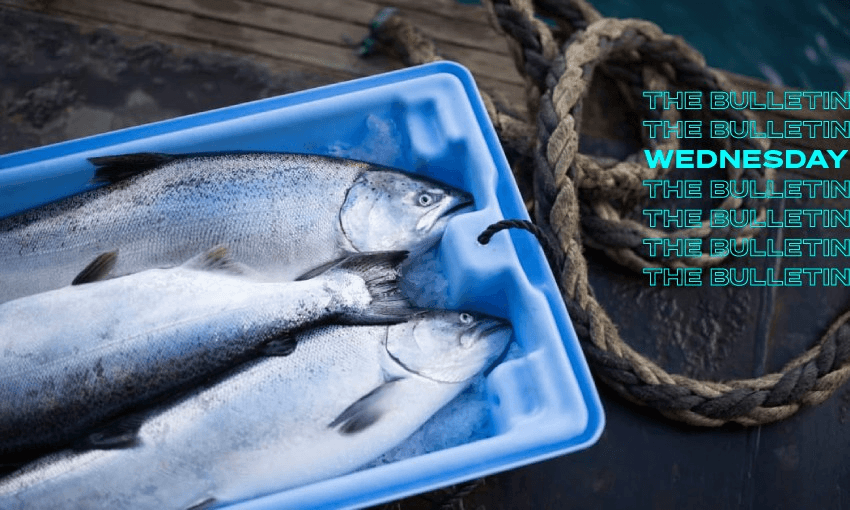A marine heatwave killed 1,300 tonnes of salmon at a Marlborough Sounds farm and it’s raising questions about how our aquaculture industry adapts to climate change, writes Anna Rawhiti-Connell in The Bulletin.
Marine heat wave kills fish
As RNZ’s Hamish Cardwell writes, a marine heatwave has lifted ocean temperatures five degrees above normal in parts of the country. Salmon don’t thrive in warmer marine temperatures and, in the wild, will seek out cooler waters. That’s not possible in a farmed environment and in Marlborough the country’s largest salmon exporter, New Zealand King Salmon, sent 1,300 tonnes of dead salmon to landfill, laid off staff and closed farms after the heat wave killed the fish. For those that imagine fish as items in a supermarket trolley, that’s 1,300,000kg of salmon or roughly 6,500,000 of the 200g packets of salmon that currently sell for $17.49 at New World.
Questions about how multimillion dollar aquaculture industry adapts to climate change
For those that think in business metrics, New Zealand King Salmon has posted a $73m loss, as reported by Newsroom’s Marc Daalder. According to figure.nz the value of aquaculture exports in 2021 totalled over $424m. Both Cardwell’s and Daalder’s stories are extensive and worth a read. Once again, I am exposing my “master of none” naivete, but that scale of loss, both in terms of fish and value, seems quite extraordinary. Both pieces highlight the extent to which climate change and the resulting marine heat waves are prompting questions and concerns about how New Zealand’s aquaculture industry adapts to it. The heat wave also caused mass bleaching of native sea sponges in Fiordland. It should be noted that concerns were raised by an animal welfare group about farmed fish after the salmon died. New Zealand King Salmon responded at the time.
Open sea aquaculture a possible solution but delayed by RMA consent process
Fish has the potential to be a more sustainable and climate-friendly source of in-demand protein both here and abroad. The industry is keen to look at open ocean aquaculture which, as Daalder writes, could unlock a new scale of fish farming while also boosting climate resilience. New Zealand King Salmon applied for resource consent to do just that in 2019 but was met with opposition and Covid-related delays. Chief executive Grant Rosewarne says a bespoke piece of legislation, rather than the lengthy Resource Management Act process, would’ve likely saved the salmon and their business.
Last summer’s marine heat wave is unlikely to be the last
The newly-agreed-to free trade agreement with the European Union has been celebrated by the fisheries industry, as highlighted by various industry press releases and this article in Fish Farmer Magazine (a new read for me). It represents tariff savings of $19.6m per annum and, as Cardwell writes, the government sees the aquaculture industry as a good bet for producing low emissions protein with international market potential. Scientists say last summer’s marine heat wave is unlikely to be the last. Andrea Vance recently published an overview of the mish mash of legislation that governs our marine environments. Experts say a lot of it is out of date – both in terms of protection of our marine environment and in dealing with the threat degradation poses to the commercial value extracted from it. As Cardwell writes, “aquaculture is a climate change canary” and this story about salmon seems very emblematic of the challenges and balancing act we face.


